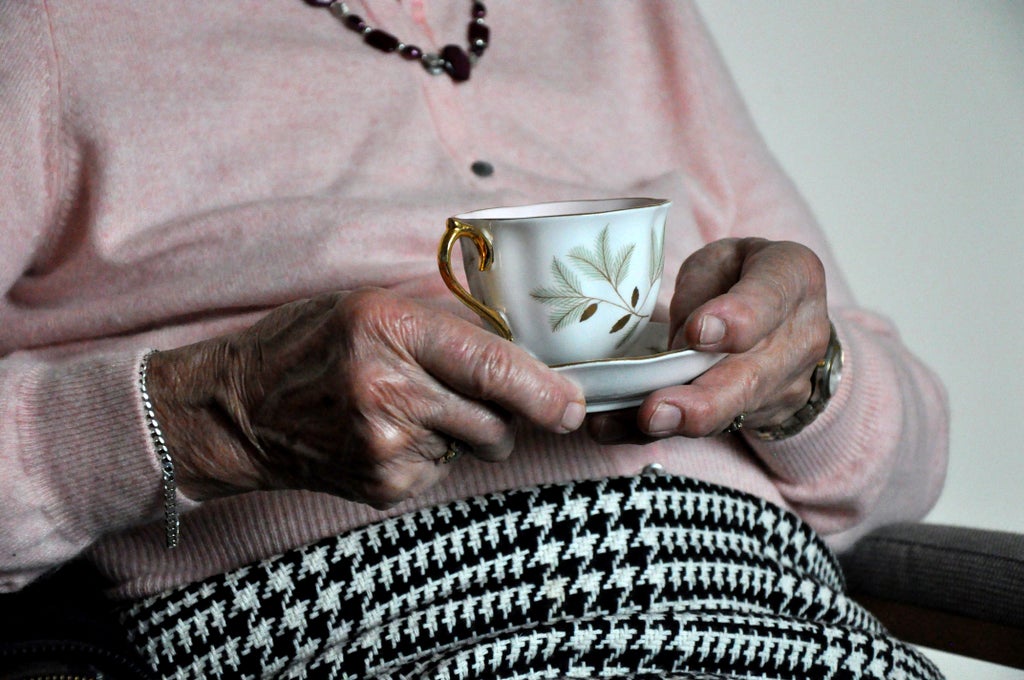
Talking therapy may improve depression symptoms for people with dementia providing hope for a group who typically do not benefit from antidepressants, new research suggests.
Dementia patients often feel anxiety and depression, but how to treat these symptoms has puzzled experts as medicines commonly used for the conditions may not work for people living with dementia, and may cause side effects.
Researchers suggest the study is important as it is the first review showing that psychological interventions – talking therapies – are effective and worthwhile in the context of ineffective drugs for depression in dementia.
Led by UCL researchers, it also indicates the therapies might additionally help to improve patient quality of life and everyday function.
We want people who experience cognitive impairment and dementia to have the same access to mental health treatments as everyone else
The researchers are calling for clinical guidelines for dementia to be changed to recommend psychological therapies and, specifically, Cognitive Behavioural Therapy (CBT).
They argue that their findings challenge the notion that psychological treatments are not worthwhile for people living with cognitive impairment and dementia.
Lead author, Dr Vasiliki Orgeta, associate professor at UCL Psychiatry, said: “We currently have no standard treatments for depression for people with dementia, as antidepressants do not work for them.
“Yet, despite the lack of supporting evidence, they are still prescribed for many people living with dementia, which is an important problem given that more and more evidence is accumulating suggesting that not only do they not improve symptoms, but they may increase risk of mortality.”
Dr Orgeta added: “Previous evidence into the clinical effectiveness of psychological treatments has been limited.
“Reporting on the most up-to-date evidence, we found that these treatments, and specifically those focusing around supporting people with dementia to use strategies to reduce distress and improve wellbeing, are effective in reducing symptoms of depression.”
Psychological treatments, sometimes known as talking therapies, are based on psychological theories.
They involve a therapist working together with an individual or a small group of people to develop skills and strategies to improve well-being, and these treatments can be adapted for people with cognitive impairment.
There is now good enough quality evidence to support the use of psychological treatments for people with dementia, rather than prescribing medications, and without the risk of drug side effects
Researchers say people with dementia are twice as likely as others their age to be diagnosed with a major depressive disorder.
Previous studies have estimated that 16% of people with dementia experience depression, but this may be as high as 40%, so there is a great need for effective treatments.
Depression and anxiety can also increase the severity of the neurological impairment itself, thus reducing independence and increasing the risk of entering long-term care.
Dr Orgeta added: “Our findings break the stigma that psychological treatments are not worthwhile for people living with cognitive impairment and dementia, and show that we need to invest in more research in this area and work towards increasing access to psychological services for people with dementia across the globe.
“We want people who experience cognitive impairment and dementia to have the same access to mental health treatments as everyone else.”
The paper, published by the Cochrane Library as part of their database of systematic reviews, used evidence from 29 trials of psychological treatments for people with dementia or mild cognitive impairment, including close to 2,600 study participants in total.
Co-author Dr Phuong Leung, UCL Psychiatry, said: “There is now good enough quality evidence to support the use of psychological treatments for people with dementia, rather than prescribing medications, and without the risk of drug side effects.
“What we need now is more clinicians opting for talk therapies for their patients and commitment to funding further high-quality research in this area.”







